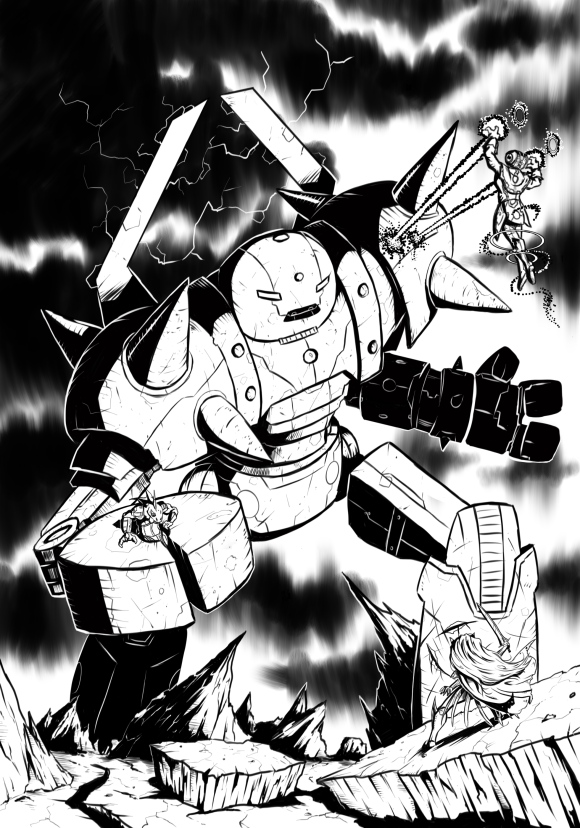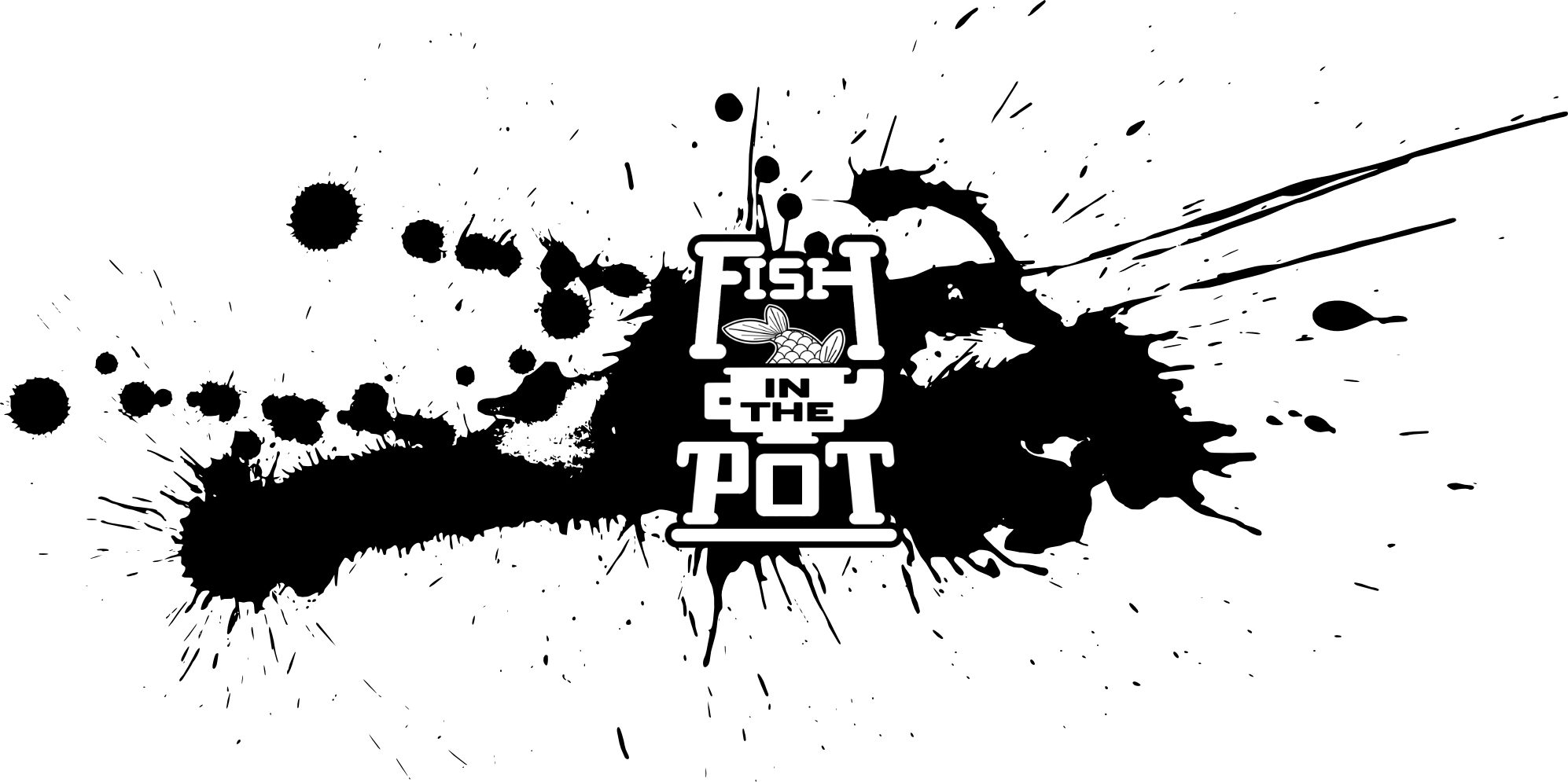So you’ve read Warriors of Eternity and you are ready to gather some friends and have a go at playing. Awesome! Here are five ways that you can prepare to have fun as a WoE Game Master.

1. Be prepared to move the other Players forward.
Warriors of Eternity presumes that all of the Players will work together to craft a story. This is a baseline assumption of many different RPGs, but the process is unique and essential to WoE. Players may need direction and assistance in acquiring Prompts. Be prepared to provide that direction and assistance.
This role of a WoE GM is very similar to the role and expectations of a GM in many other systems. The GM sets up scenes and plans for conflicts and mysteries, setting the pieces on the board for play.
Players may be attracted to the idea of pursuing some of the mysteries or resolving some of the conflicts set up by the GM. If so, the GM should guide and direct the other Players in a way that allows them to discover truths about how the world works. Whenever the Players make a discovery, the GM should point it out and suggest a General Prompt that may be applicable. The GM should have the Player record the General Prompt in their Prompt Journal and add a Bond Point to their Character Sheet.
Anytime the story stalls, the GM should be prepared to offer a new clue or lead or hook for the other Players to interact with. Think of it like a kick-start. The other Players are sitting and waiting for something to do. They want to dig into the next thing with their Powers or their personality. The GM should use this opportunity to introduce something new, bring back something overlooked, or provide a new light on something taken for granted.
Don’t forget to keep an eye on the Prompt charts and point out when the Players have opened a Prompt naturally through the narrative.
2. Be prepared to listen to the other Players.
The GM should always be listening to the other Players. The things the Players say at the table are often the things the Players want to do at the table. The GM should not interrupt the Players when they are speaking. It is rude and the next thing they say could change the campaign forever.
If none of the Players were very interested in the hooks and pieces the GM set up at the outset of play, then the GM should be extra careful to listen to what the other Players are discussing at the table. The GM should be prepared to move the other Players forward in the direction that the Players wish to travel based upon the story that is starting to emerge from the interactions at the table.
Listening to the other Players, the GM should keep an eye on the Prompt charts and point out when the Players have opened a Prompt.
3. Be prepared to make decisions.
Warriors of Eternity is written in a manner that presumes good faith rules interpretation, as well as equity and fair play. This means that all of the Players are expected to work together to decide how the rules of the game interact with the rules of the story. Notwithstanding such expectations, the GM should be prepared to make rulings and decisions based upon their interpretation of the rules.
Often, the GM will be asked questions by the other Players that focus on clarification of rules and what is or is not acceptable for their PC to be able to do within the boundaries of the rules or the story being told. It is helpful to discuss the ramifications of decisions with the other Players, but really more fun can be had if a decision is made so that play can continue.
The GM should be prepared to respond quickly and decisively to questions that come up in order to facilitate more story-telling and less rules discussion. A good rule of thumb for a GM making decisions is: “Do the thing that makes the PC more awesome.”
The GM should reflect upon these decisions after the game and feel free to revisit or revise any rulings made. The GM should remember to listen to the other Players and take into account their desires and the potential effect on the culture of the table when reflecting upon their rulings and decisions.
It is nice when the whole table agrees on a thing, but this does not always happen. The GM should be prepared to keep the Players moving forward in the story by making rulings and decisions in a timely manner when appropriate.
4. Be prepared for Powerful PCs.
Warriors of Eternity is a game of Power, Magic, and Technology.
The “Power” is emphasized in many different ways in the game, from Power Points to Power Swords, but the most pervasive emphasis is in the expectation that PCs will be Powerful heroes.
Level 1 PCs in WoE are quite capable and should feel like they are a cartoon hero showing off their abilities on a Saturday morning. By the time the PCs gain a few levels, or spend some Bond Points to acquire new companions and equipment, they will be able to stand up to even the scariest threats.
More than this, a WoE GM should endeavor to make rulings and decisions that make their Players’ PCs feel more powerful. A good rule of thumb for a GM making decisions is: “Do the thing that makes the PC more awesome.”
The GM should be prepared for strange and Powerful shenanigans from the PCs. Listening to the Players, the GM should allow for creative solutions to even the most intricate of their plans.
Do not misinterpret this rule to mean that the GM should make things easy for the Players. The PCs will be able to perform powerful feats. They will pull off the unexpected. The GM should be prepared to offer fun and challenging obstacles that enhance the story being told and allow the PCs to grow as characters.
5. Be prepared to be the table’s historian.
WoE is a game that emphasizes Table Canon. (Read a bit about Table Canon here).
This means that the truth of the world in which you play lives in the moment it is created. The characters, plots, and locations that make up the story’s world exist only as expectations prior to play. These ideas are “born” when they are made a part of the story through play at the table. Thereafter, the ideas exist only as memories shared by the Players at the table.
Players will be recording Prompts in their Prompt Journals as the story progresses. This will help everyone remember the history of the shared world as established by the Players through Play. The GM should be prepared to begin each session with a discussion about the Prompts that were acquired in the previous session. This brief discussion about the truths recorded in the last session will refresh the collective recollection of the table and provide a solid foundation for the new session of play.
Despite the recording of Prompts and the pre-game discussion of last session, many details will be lost. The human mind is a wondrous apparatus that has a penchant for meandering in a manner that leaves its host guessing as to what exactly it was on about in the first place. The memory of the in-story events will become vapor in the minds of the Players.
The GM should be prepared to act as the table’s historian in moments of missing memories. This does not mean that the GM is expected to never forget anything that happens. It means that the GM should be prepared to answer a question no one can remember the answer to whether that answer is correct or not.
In Conclusion…
You may notice that all of the above advice for the WoE GM is advice to be prepared. However, it is not advice that the GM must prepare. In fact, too much preparation can leave the WoE GM unprepared to do the things highlighted above.
Being a good GM is not about memorizing names, numbers, or places. Being a good GM is about listening to the Players and making decisions that lead the Players into fun.
Build trust. Be kind. Listen to the Players.
You’re gonna do awesome.
